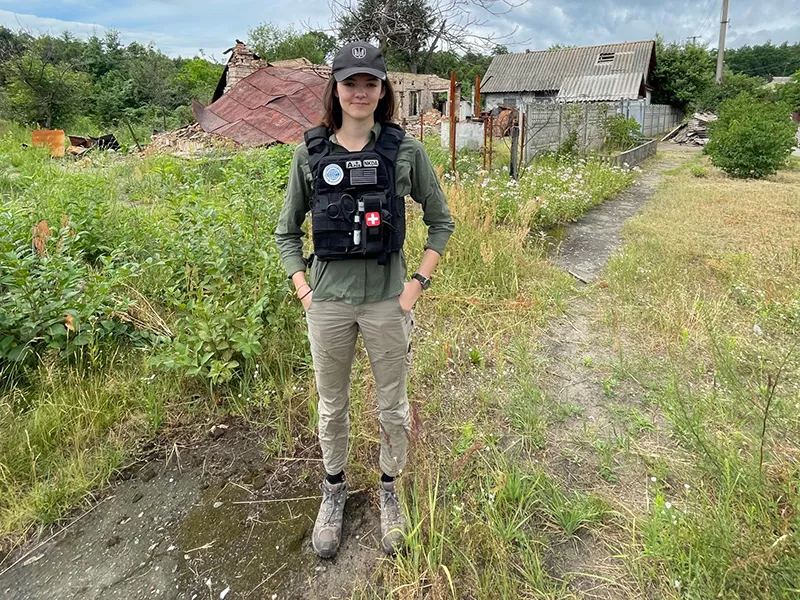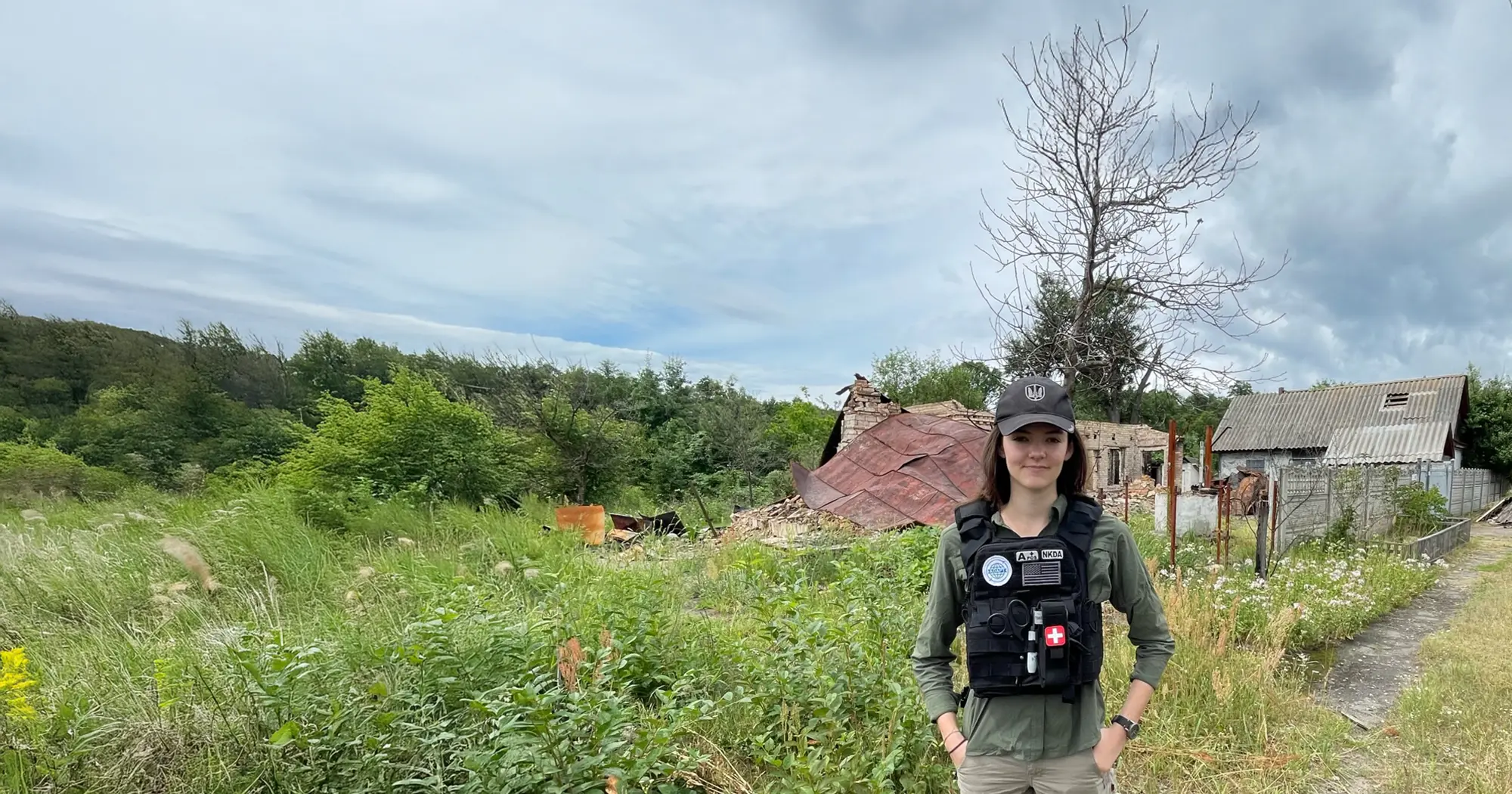

Originally published in the 2024 issue of the School of Liberal Arts Magazine
Our mission is to ensure no child is left alone with the experience of war.
An alert came across my phone the morning of July 8: “Incoming ballistics, seek shelter.” I hurried down the hallway of my Kyiv apartment, the walls trembling as Patriot missiles intercepted the incoming Russian strike. I rushed outside, where black smoke clouds enveloped the city, and found refuge in the underground metro. Once the explosions subsided, I made my way to work, arriving just in time for our morning meeting — as if it were any other Monday.

Since graduating in 2023, I’ve been living in Kyiv and working in partnership development for Voices of Children, a Ukrainian nonprofit dedicated to providing psychological and psychosocial support to children and their families. Our mission is to ensure no child is left alone with the experience of war by protecting, empowering, and advocating for Ukrainian children. As the only native English speaker, I manage international fundraising development and donor relations, ensuring effective communication with our English-speaking partners. My role has encompassed everything from writing grant reports for major donors to representing our organization at key global events — including the Council of Europe — all to amplify the voices of Ukraine’s most vulnerable.
After my first visit in 2015, my connection to Ukraine grew during a 2018 visit to a summer camp for children affected by the Donbas war. Spending time with kids my age and hearing their stories of loss and trauma profoundly impacted me. My experiences in Ukraine inspired me to shift my studies from Social Policy & Practice to Political Economy with an International Perspectives concentration.
During that same semester, I took Professor Marcus Coleman’s Global Food Economy course and analyzed Ukraine’s agricultural commodities, exploring the invasion’s impact on food security. The project led me to spend the summer of 2022 in Ukraine, delivering humanitarian aid and studying food distribution systems. Working with local groups across the country gave me life-changing insights into Russia’s war on Ukraine.
Throughout my senior year, I continued to study Ukraine and the war through the liberal arts curriculum, from Walter Isaacson’s Digital Revolution class to Digital Photography. Integrating Ukraine into class projects deepened my understanding of international conflicts and helped develop the skills I use in my work today.
Every visitor to Voices of Children’s office in Kyiv is greeted by photographs of my colleagues as children, with the caption, “We were all children once.” Seeing the display on tough mornings like July 8 reminds me of the many children seeking help at our centers. I think of our psychologists in Kharkiv, who continue to provide essential support even under constant threat and wearing body armor. I recall the stories shared by returned Ukrainian children of uncertain journeys home from deportation, navigating minefields and gunfire. I am inspired by the vision of our founders and the dedication of my colleagues, whose belief that every Ukrainian deserves a childhood has supported some 103,000 beneficiaries — and counting.

